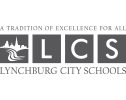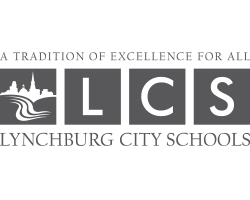Student health is essential to school success! Healthy kids have higher attendence rates, higher test scores, and better behavior in class.
Click here to go to Live Healthy Lynchburg's Learn Healthy page to learn more about resources for teachers (classroom programs, healthy rewards, and health curriculum) and parents (walking to school, healthy lunches/snacks, fundraisers, and celebrations).
Everything from eating a good breakfast, brushing teeth, fruits and veggies at lunchtime, getting physical exercise, to sleeping well at night, all impact your student's performance in school.
We know that the school year gets hectic, and it can be hard to stick to healthy habits. We're here to help!
Parents, teachers, students and administrators must collaborate to ensure that the school environment is as healthy as possible and set each student up for success.
Wellness Policy
Our district has developed a wellness policy that is focused on improving the health of students. The policy was developed by the Student Wellness Team that includes students, teachers, parents, administrators, and the district nurse.
Key Areas of our Wellness Policy
Balance is essential for any wellness policy. Key areas include:
- Nutrition education
- Physical activity
- Other school-based activities that are designed to promote student wellness.
A local school wellness policy is a written document of official policies that guide a local educational agency (LEA) or school district’s efforts to establish a school environment that promotes students’ health, well-being, and ability to learn by supporting healthy eating and physical activity.
The local school wellness policy requirement was established by the Child Nutrition and WIC Reauthorization Act of 2004, and further strengthened by the Healthy, Hunger-Free Kids Act of 2010. It requires each LEA participating in the National School Lunch Program and/or School Breakfast Program to develop a local school wellness policy that promotes the health of students and addresses the growing problem of childhood obesity. The responsibility for developing a local school wellness policy is placed at the local level so the unique needs of each school under the jurisdiction of the LEA can be addressed.
JHCF - Student Wellness Policy
JHCF-RZ - Student Wellness Regulation
According to the Final Rule of the Local School Wellness Policy implemented under the Healthy, Hunger-Free Kids Act of 2010, an assessment of the Wellness Policy must be conducted at least once every three years. Lynchburg City Schools (LCS) presents the 2020-2023 Triennial Assessment, which includes the timeframe from July 1, 2020 through June 30, 2023.
LCS Wellness Policy Triennial Assessment 2020-23
Healthy Classroom Snacks
Healthy Classroom Celebrations
Student Illness Guidelines
Lynchburg City Schools wants to make sure that we keep our students and staff as healthy as possible to foster a conducive learning environment for everyone.
The document linked below is a directive for staff and parents to assist in the appropriateness of keeping a child home. Lynchburg City Schools is aware of the stresses of work life balance when it comes to caring for children. Please use this document as a guideline when determining when a student needs to return to school.
LCS Student Illness Guidelines
Flu Information
Great hand hygiene continues to be the best way to prevent the flu virus from spreading throughout your homes, as well as Lynchburg City Schools. When you or your child wash your hands, use warm water with soap, instead of quicker, more harsh methods such as alcohol-based hand sanitizer. Not only is using hand sanitizer repeatedly damaging to your skin, but it is also not as effective as washing with soap and water at getting rid of the germs. Of course, if water and soap are not available, using hand sanitizer is better than not doing hand hygiene at all. Germs love to hide under fingernails, so another hand hygiene tip includes cleaning well under your fingernails as you scrub. Click on the following link to find out more details about the what, when and how to wash your hands: https://www.cdc.gov/clean-hands/about
A fun activity to teach your child about hand hygiene uses glitter placed on the hands to demonstrate how germs like to stick and without properly washing your hands, it can be difficult to get rid of them. You and your child can compare how effective different methods of hand hygiene are on the “glitter” germs. Click this link for instructions on this activity: http://lessons.atozteacherstuff.com/682/glitter-germs/
Please click on the following links for more information regarding hand hygiene and prevention against the potentially life-threatening flu.
www.cdc.gov/handwashing/
www.familiesfightingflu.org/
www.nfid.org/infectious-diseases/influenza-flu/
Athletes
Lynchburg City Schools require a physical form be filled out by a doctor on or after May 1 in order for each athlete to safely participate during the next school year.
It is essential that a parent fill out the medical history portion of the form since children are often unaware of family medical problems.
Mass screenings are not as effective in identifying potential concerns for an athlete—every child needs a medical home. Please call your child’s doctor to get this physical done as soon as possible. If your child does not have a primary care doctor, contact the coach or athletic director for assistance.

